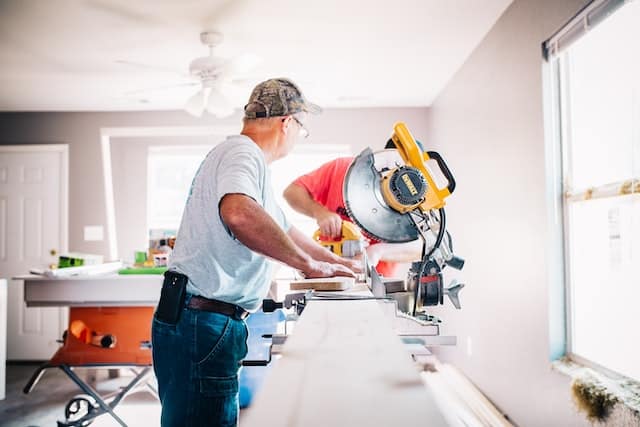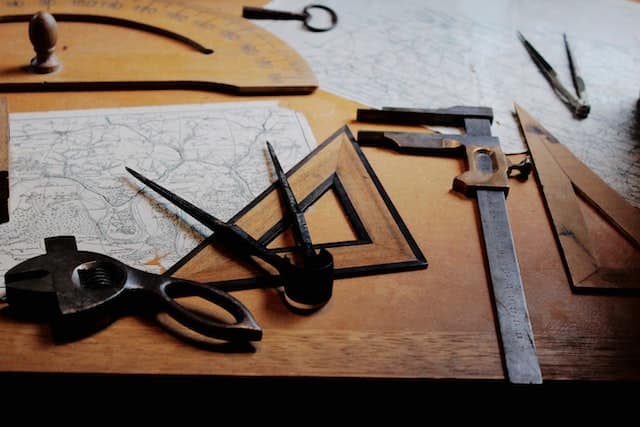Transforming a home into a place of beauty and comfort can be intricate. It requires a lot of planning, patience, and effort. But it can also be gratifying. You may find property owners who have renovated their houses successfully but need to know the exact steps they used to accomplish this. Here are some practical tips that can help make your house renovation more efficient.

Buy the Right Equipment
The whole renovation project is highly dependent on the right tools and materials. With the right equipment, you can save money and time by doing it right the first time. Before starting any renovation project, research and ensure you buy only high-quality tools that will last a long time.
You should use plastic ladders instead of wooden ones for elevation needs, as they are safer and more durable. The right tools and materials can also help minimize any potential risks or hazards during the renovation process. When buying an elevator car platform, ensure it meets the relevant safety standards. The size also matters, so buy the right size for your home. Also, don’t hesitate to ask for maintenance and replacement parts information.
Set Your Goals
Before starting any renovation project, it’s essential to consider what goals you want to achieve with the changes. Do you want to transform your home from a dated style into something more modern? Are you looking for an increase in square footage or additional storage space?
Setting tangible objectives is a fantastic way to remain motivated and organized during the renovation process. After you’ve defined your ambitions, create an actionable plan that outlines how they can be accomplished. As part of this strategy, assess the current state of the room and decide what modifications need to take place so it meets your set goals.
Prepare the Spaces
After you have developed a strategy for the restoration, it is time to start putting everything in order and getting your area ready. It is important to begin by removing any pieces of furniture or other items that will not be required for the completion of this operation. Doing so will not only assist ensure an ordered place of business, but it will also protect anything that could be damaged.
Wrapping your precious memories with tarps or some other type of protective material will prevent dirt and dust from accumulating on them over time. In addition to this, the construction of a temporary wall separating the working area from the living room will prevent any dust particles from entering either of those places.
Research Potential Costs
Renovating your home can be both time-consuming and expensive, so it’s essential to research the cost of materials and labor ahead of time. You may find that specific improvements require more spending than initially anticipated. Before shopping for supplies or hiring contractors, compare prices of different materials, products, and services on the market. Take advantage of sales and discounts when possible to help reduce your overall costs. Doing research beforehand will increase your chances of staying within budget while ensuring you get the best materials for your renovation.
When forming a budget, it is essential to be flexible. You should always have the capacity to address any unanticipated situations that may come up. For instance, if you find out during painting that the walls’ plaster underneath is damaged, this can lead to costly repairs; thus anticipating such possibilities ahead of time and factoring them into your plan will help mitigate incurred expenses in these moments.
Keep a Record
It’s also important to keep track of your expenses throughout the renovation process. Writing down every purchase and service performed will help you stay on budget and can also be used for reference purposes later. Keep all receipts for materials, tools, and services and any correspondence with contractors or suppliers.
Additionally, recording the process of your renovation with photographs can be a great resource if you experience any disagreements. Doing this will help you stay organized and get the project done quickly while also having hard evidence to reference in case it’s needed.
Obtaining an exact numerical assessment of the entire project is indispensable. Maintaining all expenditures, including labor and material costs, will ensure you get a precise cost for the renovation. Adequately monitoring your expenses will help you remain within budget and circumvent any unexpected outcomes at the completion of the project.
Create a Timely Schedule
The creation of a timeline for your remodeling project is a crucial step that must be taken if you want to ensure that the work is completed in a timely manner and remain within your financial constraints. Include expected dates of completion for each phase of the process right from the start. This will ensure that all of the goals are accomplished on time and that any delays can be avoided.
To ensure successful outcomes and keep your project on schedule, it is essential to communicate with all contractors you hire. Make sure that your timeline and expectations are clearly articulated so they can adhere to deadlines without any hiccups. Establishing regular communication channels amongst everyone involved in the project will aid prompt organization and seamless execution of tasks.
Categorize the Tasks

Even though a remodeling job might look like one giant iceberg, many individual tasks and subtasks exist. To stay organized and productive, it’s essential to break down the renovation into smaller tasks that you can tackle individually. Categorizing the tasks makes it easier to prioritize your workload and see what needs to be done first.
For instance, if you plan on painting the walls of your home, there are several tasks related to the job: prepping the walls, selecting paint colors and type, applying primers and undercoats, selecting tools for painting, etc. By breaking down the project into smaller tasks, you can better manage your workload and complete each task efficiently.
The process of renovating your house can seem overwhelming. Still, with these steps, it can be made easier. From accurately tracking expenses to buying the right equipment. Following these guidelines will help you stay organized and on budget throughout the entire process so that your renovation project goes as smoothly as possible.
